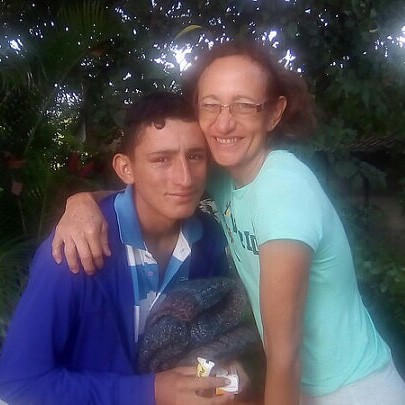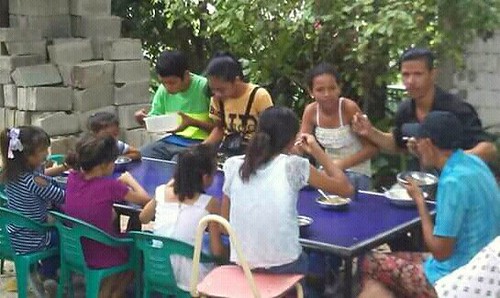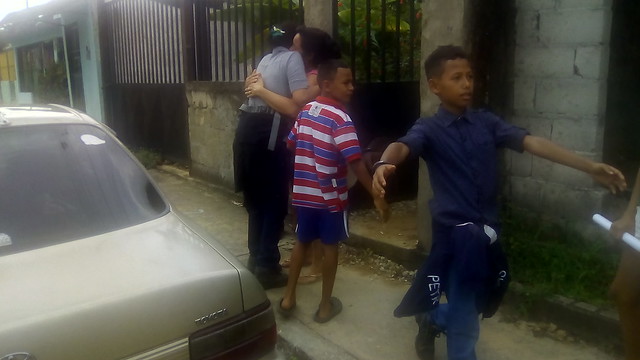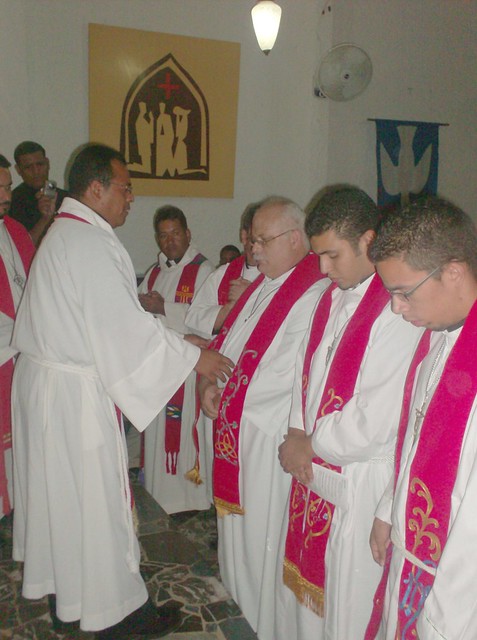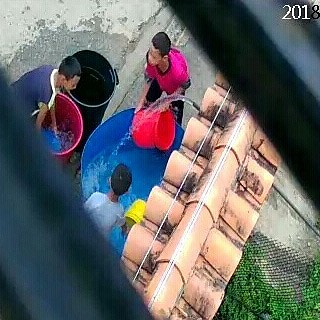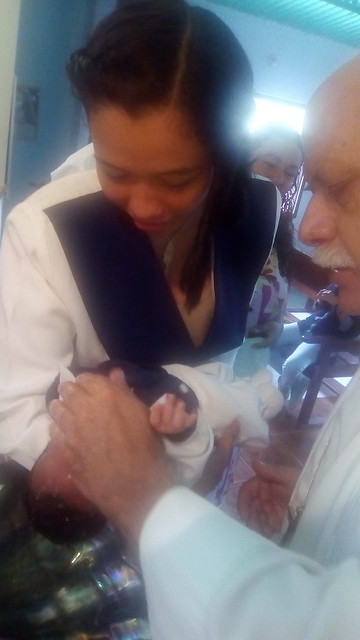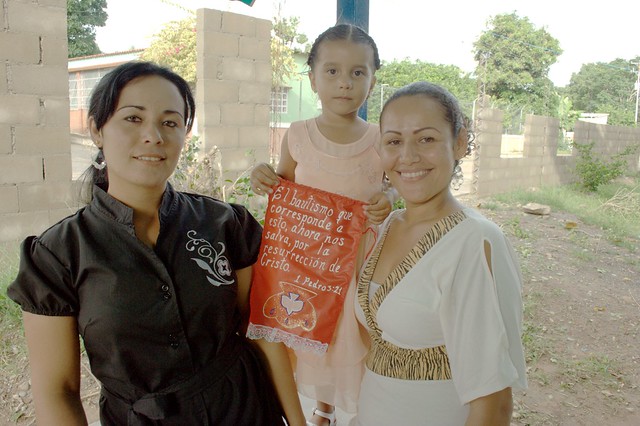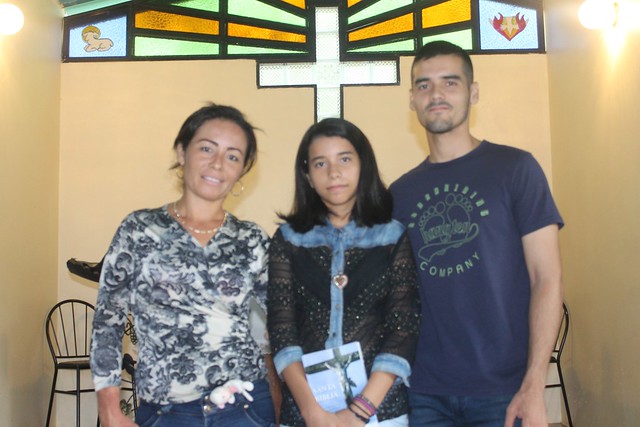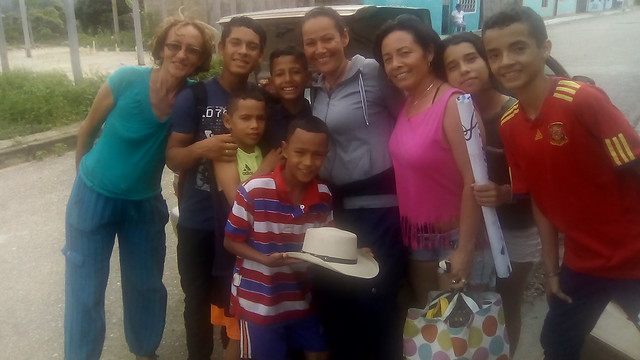So this year, 76 Venezuelans have disappeared while trying to cross the Darien Gap and some have been found dead. These stories and similar accounts of the perils of Venezuelan migrants dominate our local news, in between success stories of Venezuelans who have become NASA engineers, Major League Baseball players, and classical music composers and conductors.
Because the reality is, although political and economic conditions have stabilized somewhat, economic recovery will take years and people continue to leave Venezuela to escape violence, insecurity and threats as well as lack of food, medicine and essential services. Even with a recent increase in the minimum wage, mainly for government employees and pensioners, most Venezuelans still do not reach the figure of $1.90 a day set by the World Bank to consider the way out of extreme poverty. According to one survey, four in 10 Venezuelans say they would like to leave the country.
Good news from Global Lutheran Outreach
Although food and medicines are available through various outlets, most Venezuelans still have to decide each month whether to buy food for their families or needed medical treatment. So we were glad to hear that after a year of hiatus, Global Lutheran Outreach (GLO) has resumed its Venezuela Relief project. The resources are available to resume this work of mercy for at least one more operation, although is no guarantee for the future.
During the initial years (2017-2020), the project was a virtual lifeline because medicine ceased to be available in Venezuela. Today, medicine is once again available but at high prices and in dollars! Here’s how the program works:
Requests for medicine are coordinated through the Lutheran congregations in Venezuela.
Recipients can choose from a list of 18 common medications (up to three medications per patient). Additionally, volunteers in Santiago, Chile, send a supply of seven common medications to each church for them to distribute locally. All medicines are available in Chile without a prescription.
With your donations, medicines are purchased in Chile with the cooperation of a local pharmacy.
Volunteers at the Santiago mission congregation collate the orders and prepare each congregation’s shipment. Medicine is shipped using a globally-known shipping company, and then is unpacked and sorted for distribution to the beneficiaries.
Pray for Luz Maria’s mother
God willing, Carmen Rivero de Henriquez will celebrate her 92nd birthday on September 21. However, she is in increasingly frail health and cannot live alone. An assisted living unit, such as the one where my mother has lived since my sister’s death in February, is out of the question. Most of Luz Maria’s siblings still live nearby and have been taking turns caring for Carmen, including Luz Maria’s sister, Rosaura, who is a registered nurse. While Carmen was staying with us on the last weekend in August, she awoke at 4 a.m. and fell while trying to get dressed. She was taken by ambulance to a clinic and diagnosed with a double-fractured hip. There is a good chance of recovery, but will be completely confined to her bed for the foreseeable future. This will mean more frequent trips into town for us, but thanks be to God, COVID-19 restrictions have been relaxed and gasoline rationing has ceased.
First new deaconesses consecrated
In July we attended the graduation of 35 women that Luz Maria had mentored through the new deaconess program sponsored by the Juan de Frias Theological Institute and Concordia El Reformador Seminary in the Dominican Republic. On August 13, 2022, Angela Puzzar was consecrated and installed as deaconess at “La Fortaleza” Lutheran Church in Maracay, state of Aragua, by Pastor Edgar Coronado. On August 28, 2022, Migdalia Rodriguez was consecrated as deaconess at “Cristo Rey de Gloria” Lutheran Mission in Maturin, state of Monagas.
Reflection on the diaspora
On September 1, 2022, the United Nations reported that the number of Venezuelans that have fled Venezuela at 6.8 million, more than the 6.6 million Syrians that have fled Syria’s civil war and matching the 6.8 million Ukrainians displaced by the Russian invasion. This movement of Venezuelans out of Venezuela has been called “the Venezuelan exodus” or “the Venezuelan diaspora”. Both words can be traced to the Holy Scriptures.
Obviously, there is an entire book of the Old Testament about the first Exodus. The word, diaspora, derived from the Greek διασπορά, nowadays broadly refers to the mass dispersion of groups of people from their historic homelands. Many today may think of the flight of Jews from Germany in the face of Nazi persecution, but that was not even the first Jewish diaspora. The word was first used in reference to the dispersion of the Hebrews, their language and Scriptures, throughout the Mediterranean world beginning with the Assyrian conquest of the Northern Kingdom of Israel around 740 B.C. and continuing Babylonian conquest of Judah in 584 B.C.
Diaspora appears in the Septuagint, the ancient Greek translation of the Old Testament, first in Deuteronomy 28:25 as a warning of what will happen to the people of Israel if they disobey the laws of the covenant. In other passages, forms of the word generally refer to the “dispersion of the Jews among the Gentiles” or “the Jews as thus scattered”.
In the New Testament, the word, diaspora, appears in John 7:35 in the context of the Pharisees misunderstanding the words of Jesus about His return to the Father to mean that He would go out to the Jews dispersed among the gentiles and seek disciples from among them and also the Greeks. That is not what Jesus did, but it is what His apostles did. In James 1:1 and 1 Peter 1:1, the apostle address the new Israel, the church, in its diaspora.
The importance of this can be seen in Acts 8, following the stoning of Stephen, the first martyr, in Chapter 7. “And there arose on that day a great persecution against the church in Jerusalem, and they were all scattered throughout the regions of Judea and Samaria, except the apostles. Devout men buried Stephen and made great lamentation over him. But Saul was ravaging the church, and entering house after house, he dragged off men and women and committed them to prison.”
It is in the context of persecution, suffering and flight that the church spread from Jerusalem, throughout Judea and Samaria, and ultimately to the far corners of the Roman Empire (and farther, if tradition about the Apostle Thomas traveling to India is true). Many times in the last 2,000 years, God has used wars, disasters and persecution that drive people from their homelands to further the Great Commission of baptizing and making disciples of all nations.
This is evident in the case of the Lutheran Church of Venezuela, planted by North American missionaries in the 1950s. The GLO Venezuela Relief project depends on Venezuelan immigrants in Chile. Venezuelan immigrants also are being served the Lutheran Church – Missouri Synod Mission in Lima, Peru, and by the synod’s partner church in Bolivia, the Christian Evangelical Lutheran Church of Bolivia. We have Venezuelans as missionary pastors in the Dominican Republic, Puerto Rico and Chile. German Novelli Oliveros, formerly associated with the Lutheran Church of Venezuela, now serves in the United States as president of the Hispanic Missionary League and pastor of Grace Lutheran Church, Milwaukee. Alfonso Prada, formerly the pastor of El Salvador Lutheran Church in Caracas, now is the pastor of St. Martini Lutheran Church in Milwaukee. (I was a member of Grace Lutheran Church of Oak Creek, on the far southern edge of the Milwaukee metro area from 1986 to 1995, and my great-great-grandparents settled north of Milwaukee, near what is now Concordia University Wisconsin, in the 1840s.) So, although times are hard for Lutherans in Venezuela, the Lord has used this crisis to further the proclamation of His Gospel among Latin Americans.
Oh God, who would have Your church testify of You among all the nations: Grant to the faithful, amid the trials of this present age, courage to confess Your name. Enable us by Your Holy Spirit to be among all those whose who serve You, that the hearts of men may be changed, the weak strengthened, those who sorrow be comforted, and peace proclaimed to the abandoned and afflicted. In the name of Your Son, our Lord, Jesus Christ. Amen.






